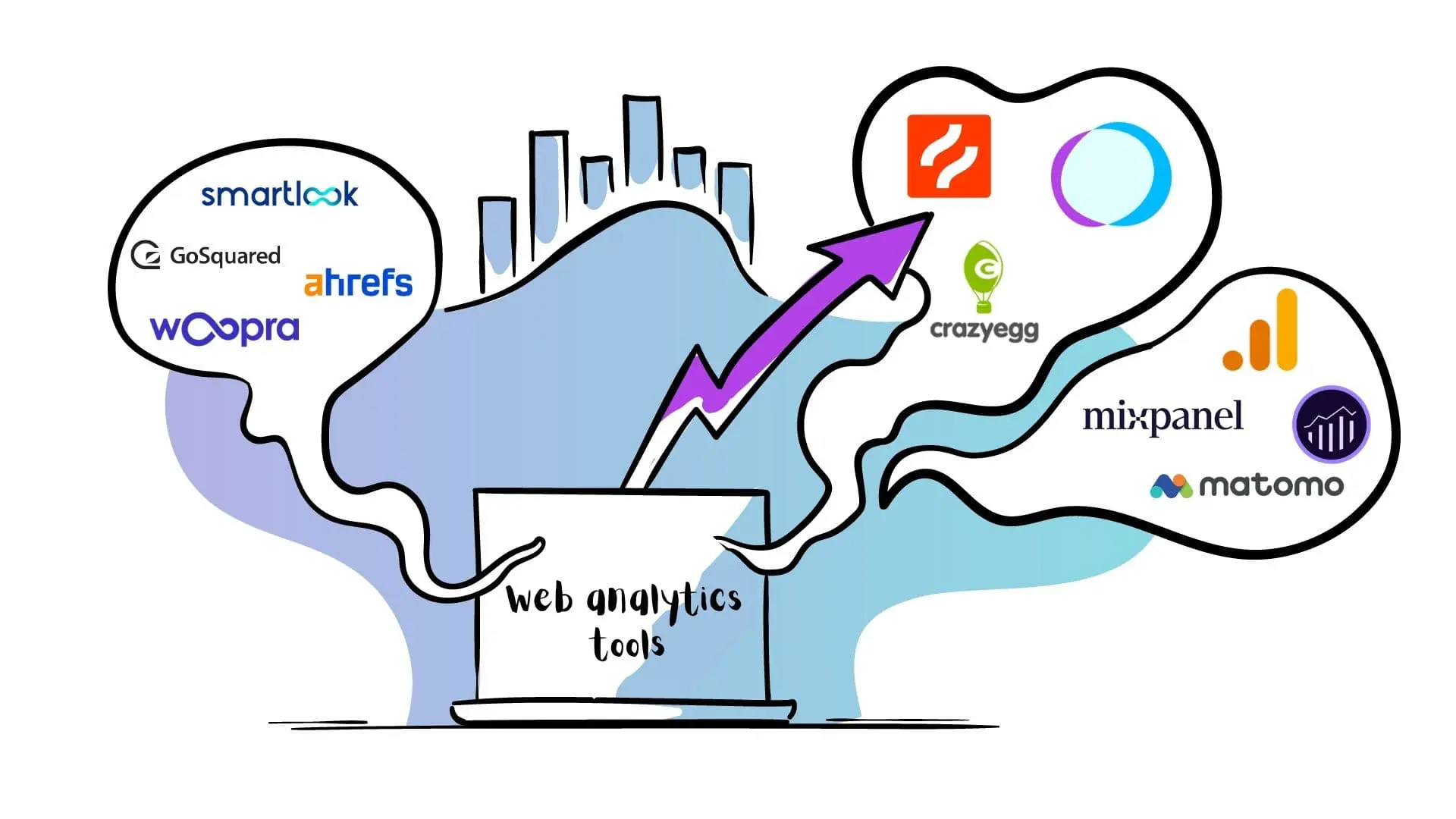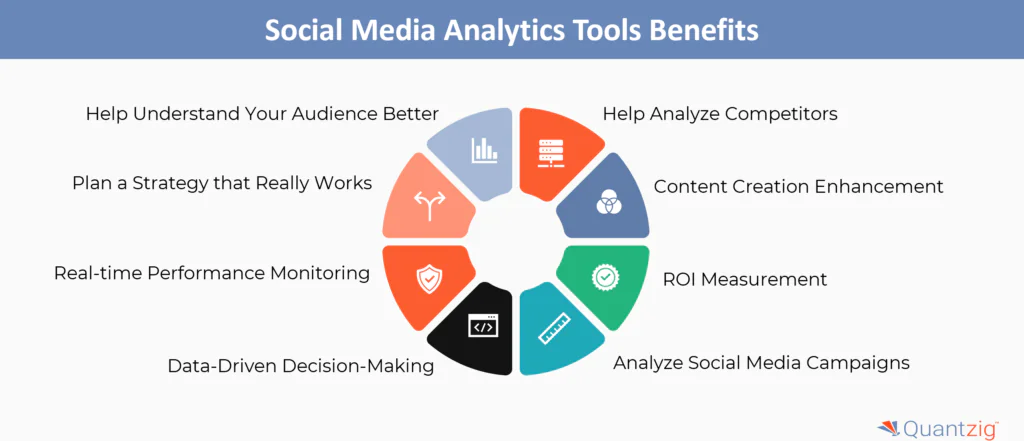Harness the Power of Big Information with Cutting-edge Analytics Solutions
Harness the Power of Big Information with Cutting-edge Analytics Solutions
Blog Article
Make The Most Of Growth: Exactly How Analytics Drive Better Methods
In today's data-driven landscape, companies significantly recognize the critical duty of analytics fit effective growth techniques. By using data insights, services can improve their operational strategies, anticipate market modifications, and improve client engagement. Nevertheless, the challenge exists not only in gathering data yet in successfully analyzing it to drive tangible end results. As we check out the key benefits and methods connected with analytics, an essential inquiry emerges: just how can companies ensure they are leveraging these insights to open their full capacity? The answer might redefine the future of critical planning.
Recognizing Information Analytics
Information analytics is a systematic computational analysis of data that allows companies to reveal purposeful patterns and understandings. This procedure incorporates a selection of strategies, including statistical analysis, anticipating modeling, and data mining, which collectively intend to change raw data right into actionable info - Analytics. By using these methods, companies can make informed choices that are rooted in empirical evidence as opposed to intuition alone
The foundation of data analytics depends on its capacity to manage vast quantities of info from varied sources. This includes organized data, such as databases, and unstructured data, consisting of social networks interactions and client comments. Through using specialized software program and devices, experts can extract and refine this information effectively, recognizing patterns and relationships that may not be quickly evident.
Comprehending data analytics likewise includes identifying the importance of information quality and honesty. Dependable and exact data is vital for meaningful analysis; thus, companies should implement robust information administration practices. Moreover, the iterative nature of analytics allows for continuous improvement and improvement of techniques, ensuring that companies remain dexterous when faced with transforming market dynamics and consumer actions.
Key Advantages of Analytics

One of the essential advantages of analytics is its capacity to provide workable insights. Organizations can quickly assess huge amounts of data, revealing patterns that might not be right away apparent. This helps in expecting market shifts and adapting strategies appropriately. In addition, analytics cultivates a society of evidence-based decision-making, lowering reliance on intuition and guesswork.
One more considerable benefit is improved customer understanding. Analytics devices allow services to section their audience, track customer actions, and personalize advertising initiatives. This targeted technique not just improves customer involvement yet additionally drives higher conversion prices.

Implementing Analytics Approaches
To completely understand the advantages of analytics, organizations have to adopt organized approaches for Website implementation. This starts with plainly specifying objectives that align with wider company goals. By developing details, measurable results, organizations can concentrate their analytics efforts on areas that produce the greatest roi.
Following, organizations ought to prioritize information governance to ensure the stability and security of the information being assessed. This includes establishing up methods for data collection, storage space, and accessibility while adhering to pertinent regulations. Making sure top quality information is crucial for producing significant insights.
Additionally, cultivating a culture of data-driven decision-making is crucial. This calls for training employees to interpret analytics searchings for and motivating partnership across divisions. When groups understand the worth of analytics, they are more probable to incorporate insights into their daily procedures.
Lastly, companies ought to regularly review and fine-tune their analytics techniques. The landscape of information and technology is continuously advancing, and remaining versatile will allow companies to utilize new tools and approaches effectively. By applying these structured methods, organizations can take full advantage of the influence of their analytics initiatives and drive sustainable development.
Devices for Efficient Analysis
Effective evaluation depends on a selection of tools that help with the removal of insights from data - Analytics. These devices can vary from straightforward spread my link sheet applications to innovative maker learning platforms, each offering a distinct objective in the logical process
Information visualization software, such as Tableau and Power BI, plays an essential duty in changing intricate datasets into understandable graphical depictions. These tools allow analysts to determine patterns and patterns rapidly, permitting more informed decision-making.
Analytical evaluation software program, like R and SAS, uses advanced capabilities for performing extensive evaluations, consisting of regression, theory testing, and predictive modeling - Analytics. These attributes empower organizations to attract significant final thoughts from their information, determining prospective possibilities and threats
In addition, database management systems such as SQL and NoSQL data sources supply the essential framework for storing and querying large volumes of information efficiently. They guarantee that data is organized and available for analysis.
Lastly, organization knowledge systems incorporate numerous data sources, giving an extensive view of business efficiency. By utilizing these devices properly, businesses can enhance their analytical abilities, enabling them to develop techniques that make the most of development and boost general efficiency.
Study of Success
Successful companies commonly utilize information analytics to drive impactful methods, as evidenced by several noteworthy situation studies. One prominent example is Netflix, which uses advanced formulas to assess viewer choices and behavior. By using these understandings, Netflix has efficiently tailored its material referrals, resulting in boosted individual involvement and client retention. Their data-driven strategy has actually unquestionably added to their status as a leading streaming solution.

Additionally, Starbucks utilizes data analytics to identify optimum shop areas and fine-tune its product offerings. By taking a look at client demographics and buying patterns, Starbucks successfully identifies high-potential markets and customizes its food selection to regional preferences, driving sales and client loyalty.
These study illustrate that effective use of data analytics can result in critical benefits, fostering development and development within companies across various sectors.
Conclusion
In conclusion, the combination of analytics right into organizational strategies significantly enhances decision-making processes and fosters sustainable development. The effective execution of analytics devices even more sustains agility and development, enabling companies to navigate affordable landscapes with greater accuracy.
Data analytics is an organized computational evaluation of information that allows organizations to discover meaningful patterns and understandings.Understanding data analytics likewise involves acknowledging the importance of data high quality and integrity. Precise and dependable information is important for purposeful evaluation; therefore, organizations must carry out robust information governance practices.Following, companies must prioritize information administration to make certain the integrity and protection of the information being evaluated.Successful companies commonly take advantage of data analytics to drive impactful techniques, as evidenced by numerous remarkable case studies.
Report this page